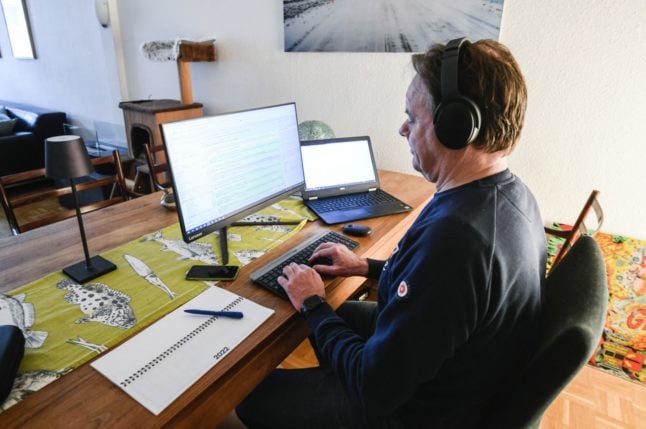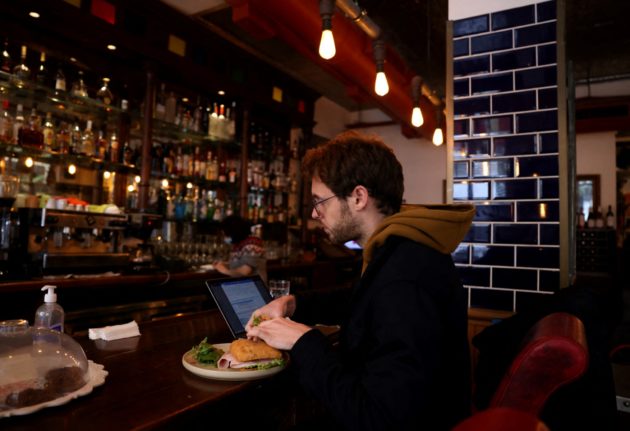The pros and cons of homeworking were thrown into sharp relief during the Covid-19 pandemic – and it seems there are more pros than cons for many employees, who avoid having to commute to work one or more times per week.
For employers, the advantages are sometimes less clear, if articles about the benefits of going into the office are accurate. However, the fashion in France seems to be for a form of hybrid working, with those workers able to do so spending part of the week in the office and the rest working remotely.
Meanwhile some people just do it as needed – for example to avoid transport disruption during a strike or during the Paris Olympics for people who work in areas close to Games venues.
If you do want to work remotely in France – or if your employer has asked you to – are as follows:
Negotiate
Private sector employees can negotiate an agreement to work remotely full- or part-time. If you ask to work from home for any number of days per week on a long-term basis, your boss has the right to refuse, but must give a reason.
Your boss can also ask you to work from home. In normal circumstances, you can refuse and don’t have to provide a reason. However, in the event of exceptional circumstances (such as, for example, a pandemic), remote working may be imposed on employees without their agreement.
Either way, it’s considered sensible to have the agreement down in writing so that everyone knows where they stand. It also means that no one will get shouted at during any health and safety inspection.
It’s a good idea to check any conventions collectifs – collective agreements – that exist in your profession or workplace. They may well have covered remote working already, so it is well worth checking out what this covers before beginning negotiations – as well as working time, the agreements may also cover things like whether your company will buy you a special chair and whether you can put in an expenses claim for extra electricity used on your work-from-home days.
The remote-working rules for public sector workers are different and slightly more complex.
Contract conditions
Assuming you are not a self-employed contractor, you remain an employee of the company with the same rights and responsibilities you have when working in the office. But if you switch to home-working permanently, your employers must provide written conditions of your working practices.
Among these must be a protocol for working hours and workflow regulation.
Employer and employee must also agree – before you start remote working – times when your boss can contact you at home, in order to preserve your right to a private life. This will usually be during office hours, obviously. But it also means your boss can’t assume you’ll be tied to your desk permanently just because you don’t have a commute.
READ ALSO URSSAF: What is it, how it works, and how it affects you
In all other aspects, the employee is under the same obligations as if they worked in the office full-time. You must respect your employer’s instructions, working hours and rules on using office equipment or systems.
Work equipment
Speaking of which… when an employee is working from home, the employer must provide, install and maintain any necessary equipment.
If the employed remote worker uses their own equipment, the employer has to ensure it is appropriate for the job and is maintained. Be aware, self-employed contractors, such as remote-working freelances, will often be expected to have and use their own equipment.
For employees who work from home, however, setting up home-working should not entail any personal additional costs. Employers must supply and maintain equipment that you reasonably need. How that equipment is supplied – whether it’s direct from the employer, or by reimbursement of the cost of setting up a work-station at home, can be decided on a case-by-case basis.
Rules on the use of company equipment at home – including, for example, limits on personal use – will likely remain the same as those in the office, but you should get this in writing before you start any shifts at home.
READ ALSO Micro-entrepreneur: How to set up as a small business in France
Allowances and expenses
Working from home will mean that personal electricity bills rise as workers use their own electricity for lights, coffee machines/kettles and computers.
Any fixed expenses – such as stationary, phone calls, printer cartridges, for example – can be claimed back from your employer on the production of receipts.
You are also entitled to ask your employer to share some of the cost of utilities like electricity, internet and heating.
If you work in a job where you receive restaurant vouchers, these cannot be withdrawn if you switch to home-working.
Data protection
The employer has an obligation to protect any customer and company data used and processed by its employees, including remote workers, whether the worker uses the employer’s equipment or their own.
Health and safety
If you are working at home, your residence becomes your workplace for that day, with all that implies legally. For example, if you fall down your own stairs on a day you are working from home, that could count as a workplace accident and your employer could be liable.



 Please whitelist us to continue reading.
Please whitelist us to continue reading.
Member comments